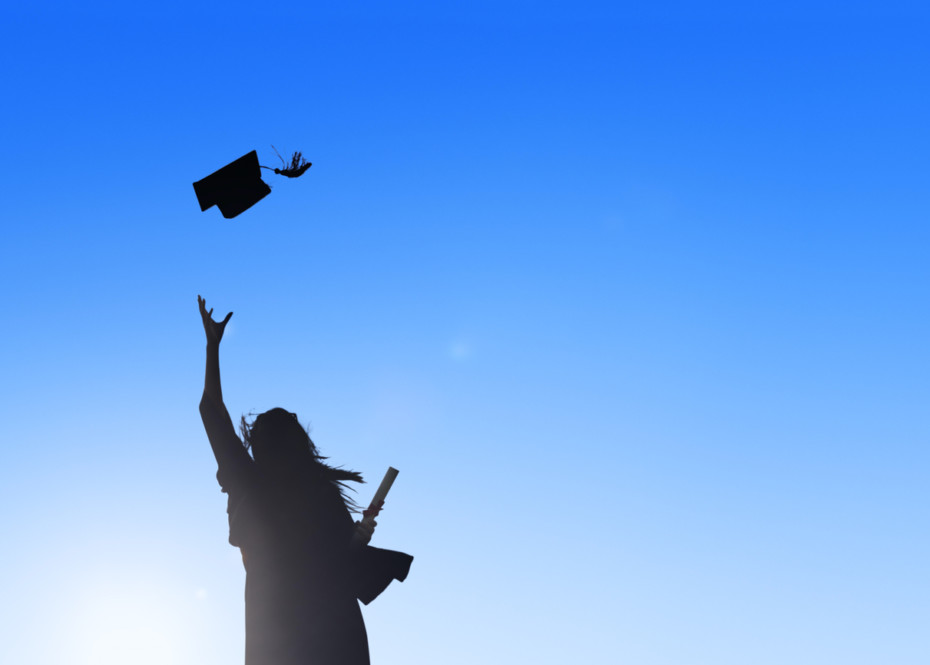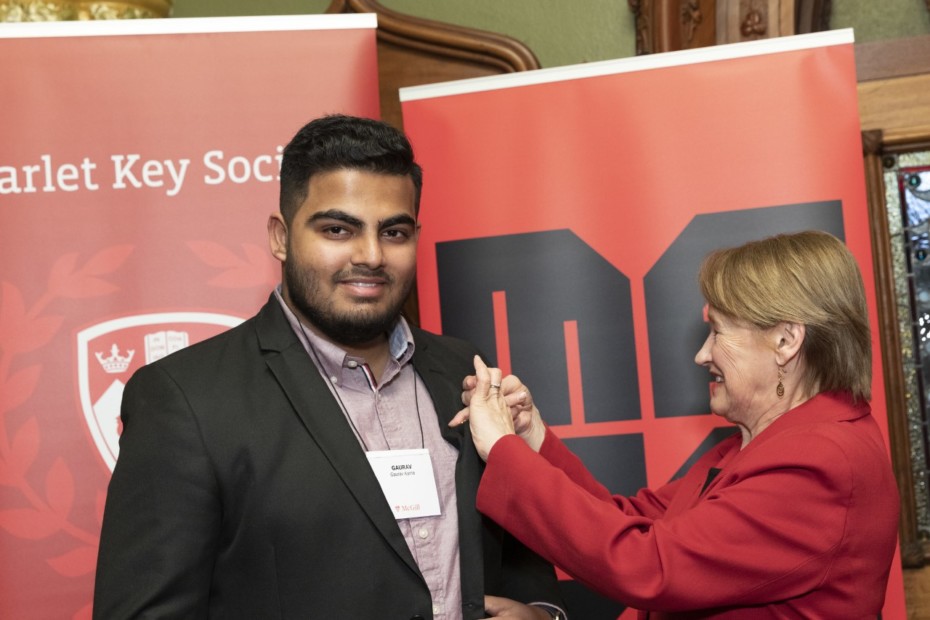
As with pretty much every graduating student around the world, Gaurav Karna didn’t exactly plan Convocation 2020 to go like this.
Earlier this year, Karna was looking forward to his parents flying in from his hometown of Nassau, in the Bahamas, to watch him walk across the stage and receive his Bachelor of Arts and Science in Cognitive Science with a minor in Computer Science.
But COVID-19 derailed those plans.
Instead, Karna, who is here in Montreal, will hook up via video call with his parents on June 19 and they will watch the virtual ceremony together.
“Of course, it is not the ideal situation for any of us, nor for any of my peers who are also graduating – but it is just another consequence of the global pandemic,” says Karna via email. “Fortunately, McGill has committed to holding our in-person convocation in Spring 2021, provided that public health restrictions allow for it.”
Karna says the COVID-19 shutdown caught he and many of his classmates by surprise. “Some of us had our last undergraduate class, went to our last University social event, or met up with friend of ours for the last time – while not even knowing it,” he said.
Although he admits remote classes to finish the semester “were definitely a big adjustment,” Karna praises the University’s response to the pandemic. “We owe our instructors and staff a lot of credit, as this was something no one could have foresaw, particularly the rate at which things changed.”
Diverse, multinational student body
Karna is one of over 2,600 international students graduating this spring, or almost one-third of the Class of 2020. From Azerbaijan to Zimbabwe, the Class of 2020 represents 124 countries, including some of the largest (Russia and China), as well as some of the smallest (Saint Lucia and Luxembourg). As Convocation has gone virtual, people from all around the world are now tuning in to celebrate.

This diversity is one of the University’s strengths. In the recently-released QS World University Rankings, McGill had the highest international student ratio among Canadian peer universities.
Statistics provided by McGill’s International Student Services (ISS) show that there were 12,798 international students from 154 countries enrolled at the University for the 2019-2020 academic year.
“International students come to McGill with diverse backgrounds and life experience,” says Pauline L’Ecuyer, Director, International Student Services. “Some are citizens of the world already with dual citizenships, and have lived in multiple countries before they arrive in Montreal. Others applied for their first passport when they received an offer of admission from McGill. Whatever their story is, we help them transition to McGill, develop intercultural competences and be ready for the next chapter of their life.”
As its name implies, ISS provides international students with a wide range of support that begins even before they arrive in Canada and, in some cases, years after they graduate.
“We continue to help those international students who want to stay in Canada and benefit from the generous Canadian program offering a three-year post-graduation work permit to international students,” says L’Ecuyer, who notes the ISS team is already busy preparing remote orientation and services to the new cohort of international students coming this Fall.
Launch of the Rainbow
But the diversity of the Class of 2020 is not just a question of citizenship.
On May 20, Launch the Rainbow brought together students, staff, faculty and administration to celebrate graduating 2SLGBTQIA+ students. Once again, technology saved the day, allowing the event, now in its third year, to be held virtually.
“We felt it was so important to keep the Launch of the Rainbow going, to keep creating these community-building spaces, to break the isolation, especially now in times of COVID-19, where people (and especially 2SLGBTQIA+ students) experience isolation, stress and anxiety,” says Meryem Benslimane, Equity Education Advisor, Office of the Provost and Vice-Principal (Academic). “We wanted to honor our 2SLGBTQIA+ graduating students, who were not able to celebrate finishing their degrees at Convocation in person this year, by at least providing this safe space online and be able to bring McGill’s community together, staff, students, faculty and alumni.
“Principal Fortier and Angela Campbell [Associate Provost (Equity and Academic Policies)] have both been really supportive from the start of this initiative, and made sure to be able to attend and say a few words to the students,” says Benslimane. “I think it brought a lot of joy to the students, to see that we care and want to keep supporting our 2SLGBTQIA+ students.”
First Peoples’ House graduation ceremony
Next up, First Peoples’ House hosted an online celebration of graduating Indigenous students on June 3. Held via Zoom, the event drew students, friends and family from the United States and across Canada.
“Every time an Indigenous person advances educationally, we all advance educationally,” said Ben Geboe, Coordinator, Indigenous Access McGill, and MC of the event, in his opening remarks. “It is a tremendous contribution you have given to yourselves and to your communities. Even if we don’t come together again, this is a very important thing.”
“The Indigenous student community is really the backbone and driver of positive change at McGill,” said Tomas Jirousek, Indigenous Graduate Speaker in his address. Jirousek was the recipient of the inaugural Moral Courage in Reconciliation Award for his leadership in the efforts to change the name of the men’s varsity teams at McGill. “While there aren’t that many of us, in no way does that diminish the impact that we’ve had as a graduating class.”
“Congratulations to my fellow graduates, this is an incredible milestone,” said Jirousek, who earned a BA Honours in Political Science. “I know that each of us has the power and opportunity to change the world, whether that is through activism or community engagement or however you choose to spend your lives. It’s honestly been such an honour to get to know all of you and I will truly miss you.”
Lifelong friendships that span the globe
“My fondest memories are a result of the diverse people I connected with on campus,” says Karna. “Even within my group of friends, there are six continents and nearly 20 countries represented. All of the late nights at the library, Thanksgiving meals, reading week trips, and faculty events have culminated in lifelong bonds that I will always treasure.”
In the fall, Karan will move to Vancouver to start his full-time job as a software engineer at one of the largest technology companies in the world. “I’m super excited to be starting the next phase of my career, and thankful for all the support I’ve received from my family, friends and the University,” he says.
“I’m really happy that I chose to come to McGill four years ago, and cannot imagine having made a better choice,” says Karna. “The road to the end of undergraduate was quite literally filled with almost every emotion under the sun and was anything but easy, but I’m grateful for the experience I’ve had and for the people I’ve had the pleasure of meeting. So, congratulations to everyone in the Class of 2020 (we deserve it!), which will probably go down in history for having graduated in one of the most eventful years in modern history.”
Editor’s Note: The Reporter will run a separate article on McGill’s Black Student Network’s celebration of the achievements of Black McGill graduates with the launch of the BSN’s special website later this month.
